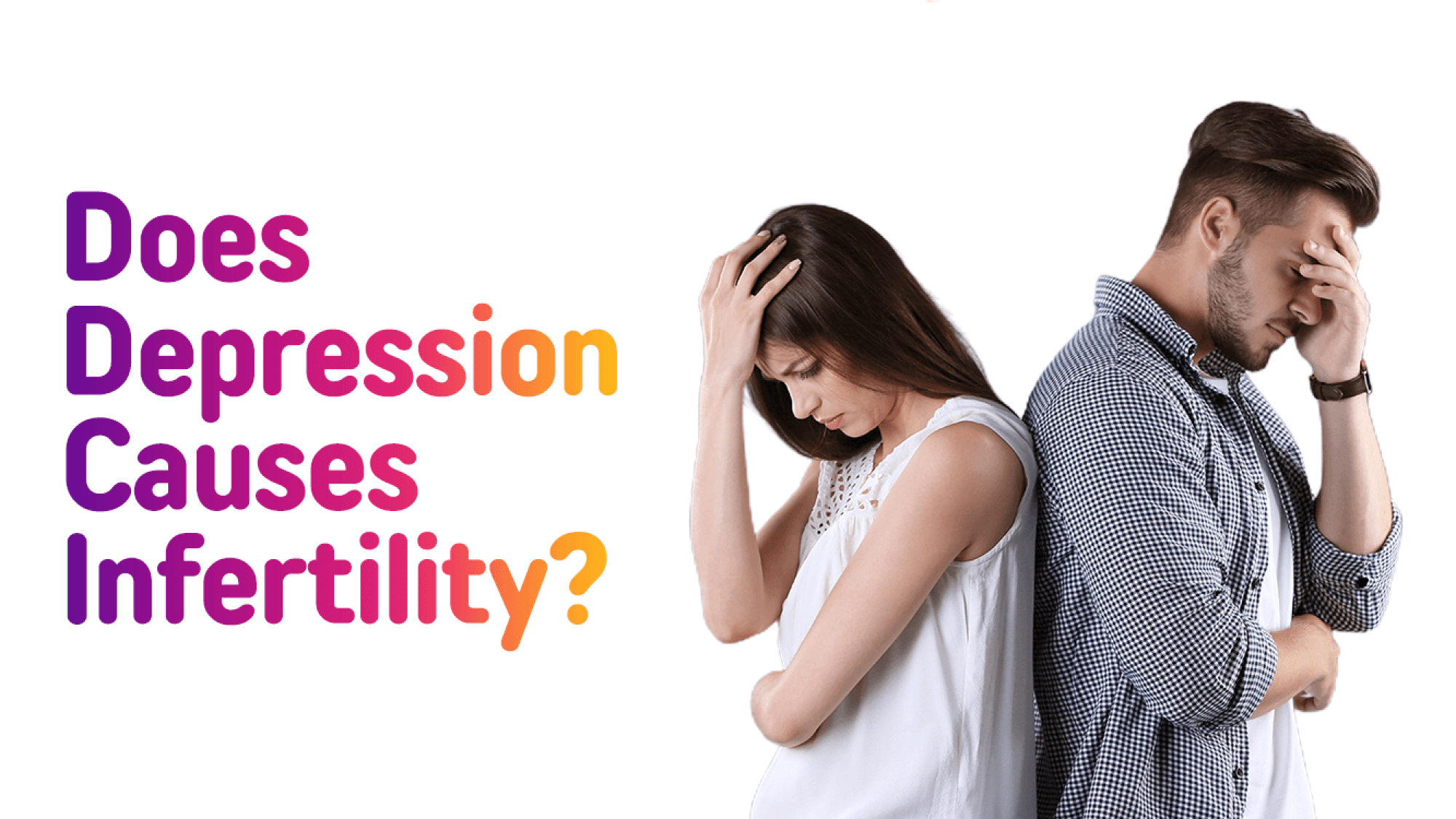Infertility is a heart breaking discovery that shatters all family-building hopes. It is obvious that the person will suffer extreme sadness and in many cases, this easily turns into depression. Some studies suggest that people seeking infertility treatments experience a higher level of stress. Overall infertility treatment and coping with it is an overwhelming experience for the majority of patients. However, it is not clear if depression causes fertility or vice-versa. This article explores the relationship between infertility and depression. As well as the symptoms of depression and the treatments available at the best IVF centre in Ahmedabad. Dr Manish Banker is a fertility expert at Banker IVF. His years of hands-on experience have allowed individuals to dream of parenthood again.
What are Depression and Fertility?
Depression is one of the most common mental illnesses around the world, including in India. Roughly 56 million Indians suffer from depression and the data has skyrocketed since the pandemic. Everyone feels sad now and then but persistent sadness can mean depression disorder. Depression affects the way how a person acts, feels and thinks. It anchors the constant feeling of gloom that causes physical and psychological issues. Such as loss of interest and lack of motivation in almost every activity. In simple words, not being able to get pregnant even after well-timed unprotected sex for a year means infertility. Around 10-12% of people all over the world suffer from infertility. Both men and women can suffer from infertility and various causes are responsible for it. Despite this, infertility treatments such as IVF have shown promising results. Let’s understand if there is any underlying relationship between depression and infertility, and if one affects the other.
How is Infertility Linked to Depression?
Depression is often associated with pregnancy, even after childbirth. Research revealed that postpartum depression was found in roughly 17% of the people in the world. Infertility is not just a medical issue but an emotional one too. And infertility is viewed as a failure in many aspects of society. This usually results in feelings of sadness that gives in a way to depression. For a woman, becoming a mother is one of the greatest feelings in the world. Similarly, for men becoming a father blesses them with the feeling of contentment and happiness. Depression often prevents the couple from visiting IVF centres or fertility centres to get the required medical attention. The stigma and shame of infertility spark depression that affects the general health. Aspiring parents find themselves socially isolated and burdened with anxiety.
Symptoms of Depression
Depression is not the same for everyone as individuals might experience varied symptoms. Below are the typical depression symptoms:
- Feelings of sadness
- Feeling worthless or guilty
- Insomnia
- Trouble with digestion
- Irritability and anger
- Loss of interest in every activity including sex
- Frequent crying
- Lack of motivation
- Experiencing low appetite
- Frequent anxiety
- Suicidal thoughts
What Causes Infertility-Related Depression?
The cause of depression among infertile couples and especially women is a complex subject to understand. Some of the potential causes are discussed further.
The Stress of Infertility
Infertility in itself is a stressful condition to deal with. Women frequently have to grapple with societal pressure while suffering from it. Also, such infertility failures can make a person question their identity, intensified by the expectation of the community. Both men and women can encounter feelings of incompetence due to infertility. Moreover, infertility treatment is generally a lengthy and demanding process that triggers anxiety and symptoms of depression.
Side Effects of Medications
Some women have reported developing depression during infertility treatment such as ART (assisted reproductive technology) or IVF (in vitro fertilization). The overall mental state is unfortunately stressed while seeking fertility treatment and failure can make the condition even worse. The medications used during infertility treatments may cause symptoms of depression. Although it is not true for every case and rather depends on certain factors. If the infertility treatment results in failure then it is more likely to experience greater symptoms of depression.
Trouble in Sleeping
The lack of sleep can influence several health issues along with fertility. Infertility prevents an individual from getting a good night’s sleep. Poor quality or lack of sleep makes infertility more destructive. This typically expands into symptoms of depression such as fatigue, tiredness, trouble focusing and more.
Can Depression Cause Infertility?
There is no solid answer to this question nor any definite evidence that can say that depression causes infertility. Although, there is somewhat a correlation between depression and infertility. It is also assumed that underlying hormonal issues might trigger infertility when depressed. A person suffering from depression can experience certain symptoms that can impact their fertility. Depression causes loss of appetite and a person suffering from may engage in a lifestyle that negatively affects fertility such as drinking and smoking. Depression itself cannot cause infertility but it can influence the likelihood of a successful pregnancy.
Seek Support
Depression or infertility is not something to be ashamed of and is not an unusual issue. Diverse treatments are obtainable to deal with all sorts of ailments. Self-care and finding support to lean on are a few ways to combat depression symptoms. Antidepressant medication and professional therapy are also excellent treatment options for depression. At the same time to cope with infertility, expert medical assistance is required. In those events finding the right treatment is crucial. Dr Manish Banker‘s IVF hospital is one of the best IVF centres in Ahmedabad, equipped with the latest technologies and years of experience. The IVF centre offers numerous diagnosis and treatment alternatives to couples suffering from infertility. The dream to become a proud parent shouldn’t be dropped this easily. Seek professional guidance and uncover a solution to your infertility!
